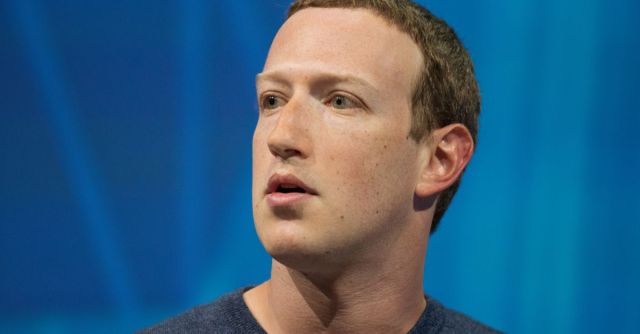Facebook CEO Mark Zuckerberg has either 1) written a Microsoft-esque, Trustworthy Computing-inspired call for the company to perform an about-face on privacy and security, or 2) he’s managed to pull a brand-healing move by infusing Thursday’s headlines with a bunch of words that include “privacy-focused” and NOT “disaster,” “breach,” or “dumpster fire.”
…or, then again, maybe 3) both.
At any rate, on Wednesday, the CEO unveiled what he framed as a major strategy shift that will involve developing a highly secure private communications platform based on Facebook’s Messenger, Instagram, and WhatsApp services.
The redesign entails streamlining communication between the three messaging services – something that Facebook announced in January. At the time, sources told the New York Times that the plan was to keep the three as standalone apps but to stitch their technical infrastructure together so that users of each app can talk to each other more easily.
Tightly connecting the messaging networks could help Facebook fend off being forced by US antitrust regulators to divest one or more of its messaging services. It would, at any rate, make divestiture a lot tougher to do.
While Facebook enables people to connect with everyone they know, Zuckerberg said, the future of online communications is going to see people moving toward a “simpler” platform that’s “focused on privacy first.” That means that Facebook will keep its nose out of our conversations, he said:
I believe the future of communication will increasingly shift to private, encrypted services where people can be confident what they say to each other stays secure and their messages and content won’t stick around forever. This is the future I hope we will help bring about.
And we should trust Facebook, of all companies, to bring this about? Look, Zuckerberg said, I get it. A lot of you don’t think this is our thing. But really, we can change:
I understand that many people don’t think Facebook can or would even want to build this kind of privacy-focused platform – because frankly we don’t currently have a strong reputation for building privacy protective services, and we’ve historically focused on tools for more open sharing. But we’ve repeatedly shown that we can evolve to build the services that people really want, including in private messaging and stories.
What a long, strange trip it’s been
Saying that Facebook doesn’t currently have a strong reputation for building in privacy is like saying that a tornado-flattened house needs a touch of paint.
The privacy crises at Facebook include letting Cambridge Analytica get at the personal information of tens of millions of users (by design, according to internal emails that came out of the Six4Three case against Facebook), and the data breach in which hackers stole data on millions of Facebook users.
After all that and more – the news never seems to stop – Facebook is hurting. Roger McNamee, an early Facebook investor and author of “Zucked” – a book that’s highly critical about the company – told the Boston Globe that Facebook’s brand is getting “crushed.”
McNamee:
They need a PR win.
Zuckerberg said that in Facebook’s new, privacy-focused future, its messaging services would use end-to-end encryption to ensure that nobody – not even Facebook – will be able to view the contents except senders and recipients. That would make it impossible for Facebook to use the information for marketing purposes. The obvious question that arises: how, then, will Facebook make payroll?
How will Facebook make money if it doesn’t sell our privacy?
Could any of these changes herald a shift away from Facebook’s core business model – i.e., data-mining the smithereens out of the masses of “dumb f**ks” who’ve trusted Zuckerberg with their data?
Well, maybe. If Facebook integrates all its apps, it could become a financial titan, for one thing. For a while, signs have been pointing to Facebook becoming an international currency exchange system: by having its own cryptocurrency, the company could enable its enormous, global user base to instantly shift money anywhere in the world as it makes interest on the deposits or charges fees.
It’s a step that would help Facebook to get its fortunes back on track in an emerging market and put its brand on the path to recovery after being damaged by its privacy missteps.
But critics say that better private messaging won’t change the fact that Facebook has plenty more ways to follow us around. One such was Jeremy Burge, the Emojipedia founder who earlier this week publicly criticized Facebook for its most recent privacy faux pas – that of allowing users to look up other users’ profiles by using the phone number they thought they were only providing for 2FA (two-factor authentication).
Burge said that putting “privacy-focused” in a headline is an empty gesture, given practices like that one:
McNamee said pretty much the same thing to the Globe:
They track people everywhere. So until they stop tracking people everywhere, they’re going to remain a huge challenge for consumers.

